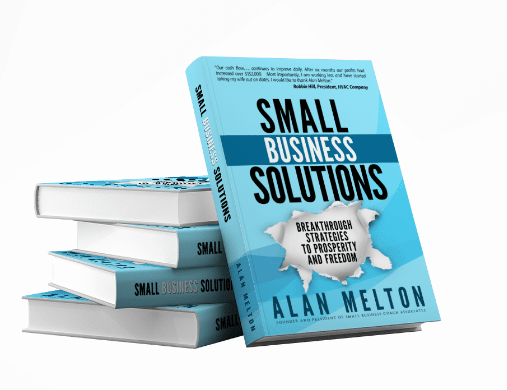VIEW BY TOPIC
- Finding Customers
- Business Systems
- Managing Employees
- Leadership
- Managing Money
Related Posts

Ready to Grow Your Business Fast?
Here’s How I Grew Five Businesses, and Eventually Sold One to a Fortune 500 Company.

What to Look for in a PEO Partner Beyond the Services List
As small to mid-sized businesses (SMBs) grow, they often encounter a common inflection point: internal HR functions that once seemed manageable quickly evolve into complex, high-stakes challenges. From payroll processing and employee benefits to compliance with constantly changing labor laws, managing a workforce is no longer a back-office task—it has become a strategic imperative.
For many organizations, especially those without a large internal HR team, turning to a Professional Employer Organization (PEO) can offer a powerful, cost-effective solution. According to a study by the National Association of Professional Employer Organizations (NAPEO), businesses that use a PEO have a growth rate more than twice that of comparable companies, experience 10 to 14 percent lower employee turnover. Moreover, they are 50 percent less likely to go out of business compared to peers that don’t use a PEO. These statistics underscore a critical point: PEOs are not just administrative helpers—they can become long-term partners that accelerate business growth and mitigate key risks.
However, the process of choosing the right PEO goes well beyond comparing service checklists. While many providers offer payroll, compliance, and benefits administration, not all deliver the same level of care, strategic insight, or alignment with your organization’s goals.
Selecting a PEO is less like purchasing software and more like hiring a senior executive. You seek integrity, collaboration, expertise, and a shared vision for growth.
Understanding the PEO Model and Why It Works
Before discussing service features or vendor evaluation criteria, it’s essential to understand how the PEO model operates and why it’s becoming increasingly popular among businesses seeking efficient workforce management.
What Is a PEO?
A Professional Employer Organization (PEO) enters a co-employment relationship with your business. This means the PEO legally shares some employer responsibilities—such as tax filing, benefits administration, and HR compliance—while the business owner retains control over employee management and core operations. By pooling employees from multiple businesses, PEOs create economies of scale that offer small and mid-sized companies access to robust HR services traditionally only available to larger firms.
The IRS also certifies certain PEOs under its Certified Professional Employer Organization (CPEO) program. These CPEOs can take full responsibility for federal employment tax filings, reducing client liability and improving transparency.

Growing Popularity Among SMBs
The global demand for outsourced HR services is increasing. The international Human Resource Outsourcing (HRO) market was valued at approximately $51.7 billion in 2024 and is projected to reach $72.6 billion by 2030.
Core Benefits of a PEO Partnership
Once a PEO is onboarded, the effects can be felt immediately. These are the foundational benefits every business should expect from a competent PEO relationship.
Streamlined Payroll and HR Administration
PEOs offer comprehensive payroll services, including wage calculation, direct deposit, tax withholdings, and year-end reporting. Many PEOs also provide advanced HR Information Systems (HRIS) that streamline onboarding, vacation tracking, and performance management. These tools improve efficiency, reduce administrative burden, and ensure accuracy—critical for businesses scaling quickly.
Access to Competitive Employee Benefits
By combining workforces across multiple client companies, PEOs can access group health insurance plans and other benefits at lower costs. These benefits often include:
- Health, dental, and vision insurance
- Retirement plans (e.g., 401(k) with employer match)
- Life and disability insurance
- Employee assistance programs (EAPs)
This game-changer for SMBs trying to compete for talent against enterprise-level firms. Offering high-quality, affordable benefits significantly boosts employee retention and satisfaction.
Improved Risk Management and Compliance
Labor law compliance is a moving target, from FMLA and OSHA requirements to wage-and-hour laws and anti-discrimination legislation. PEOs employ legal experts and compliance officers who track regulatory changes and ensure your business stays up to date. They may also assist in creating compliant employee handbooks, conducting workplace audits, and facilitating training programs.
Evaluating a PEO: Beyond the Services List
Choosing a PEO is a relationship decision. You’re not just hiring a vendor; you’re selecting a partner representing your people, policies, and brand. Here are the factors that truly distinguish a high-quality PEO.
Service Philosophy and Support Model
How does the PEO perceive its role? Are they committed to responsiveness and personalized support or funnel clients through anonymous call centers? Ask whether you’ll receive a dedicated HR representative or team. Look for a PEO that prioritizes proactive communication, consistent check-ins, and issue resolution times under 24 hours. The right PEO will demonstrate empathy, transparency, and a solutions-oriented mindset.
Industry-Specific Expertise
Some PEOs specialize in specific verticals—healthcare, tech startups, or manufacturing—and their advisors bring critical domain knowledge. This can be especially important for heavily regulated industries or businesses with complex shift-based scheduling needs. Be sure to ask about the professional backgrounds of their compliance officers, benefits consultants, and HR advisors.
Cultural and Operational Fit
Culture matters in any long-term partnership. Your PEO will influence your employee experience and internal communication. Are their values aligned with yours? Are they flexible enough to adapt to your workflows and management style? Choosing a PEO that values people, culture, and long-term relationships ensures smoother integration and collaboration.
Conducting Thorough Due Diligence
Once you’ve narrowed your list of potential partners, it’s time to get specific. Due diligence can uncover red flags, reveal operational strengths, and help you identify the best fit for your business.
Questions to Ask Every PEO
- Are you ESAC-accredited or a CPEO with the IRS?
- What is your average client retention rate?
- Do I get a dedicated service team?
- What are your SLAs (Service Level Agreements)?
- Can you walk me through a typical onboarding process?
Don’t rely solely on sales pitches—ask for references and talk directly with current and former clients. Include both long-term and newer clients to get a balanced view of the PEO’s consistency over time.
Evaluate Technology and Integration
Your PEO’s HRIS and payroll platforms should be intuitive, secure, and easily integrated with your existing systems. Ask for a demo. Confirm if they support mobile access, reporting dashboards, and employee self-service tools. As many SMBs rely on SaaS platforms for operations, a PEO that offers modern, cloud-based solutions will reduce friction and support scalability.
The Strategic Role of a Modern PEO
A well-aligned PEO doesn’t just handle HR logistics—it contributes to your company’s broader goals.
Strategic HR Guidance
Top-tier PEOs provide more than forms and filings—they offer strategic insights into workforce planning, compensation benchmarking, and retention strategies. This can be particularly beneficial during rapid expansion, restructuring, or geographic diversification. Ask how the PEO helps clients prepare for emerging HR challenges like remote work compliance, mental health initiatives, or DEI programs.
A leading PEO solutions provider stands out by offering proactive, consultative HR support that aligns with their clients’ long-term growth goals—not just administrative relief.
Measurable Impact
Consider the metrics that matter to your business: employee turnover, time-to-hire, compliance violations, or legal disputes. A great PEO should demonstrate how their partnership impacts these key performance indicators and be willing to co-create goals with you.
Choose a PEO That Fuels Growth, Not Just Administration
Choosing a PEO isn’t just about saving time—it’s about gaining a partner in your company’s evolution. When a PEO is selected with care and strategy, it becomes a growth engine, not just an outsourced task manager.
According to NAPEO’s 2023 report, PEO clients see 21 percent lower costs for HR administration per employee than companies managing HR in-house. Add that to increased employee engagement, reduced legal exposure, and access to better benefits—and the case becomes clear.
Take the time to evaluate not just what a PEO does but also how it thinks and operates. Ask tough questions. Speak to references. Request real examples of how they’ve helped businesses like yours thrive. The right PEO will walk beside you not only as a service provider but also as a strategic ally who understands your people and empowers your success.
Questions about our small business coaching services? Connect with our business coach now.














